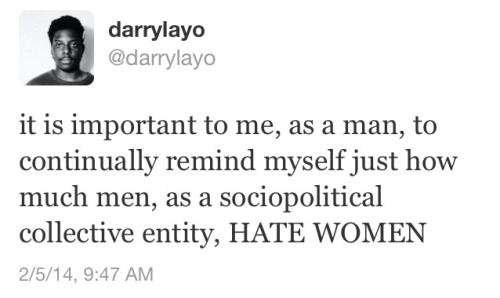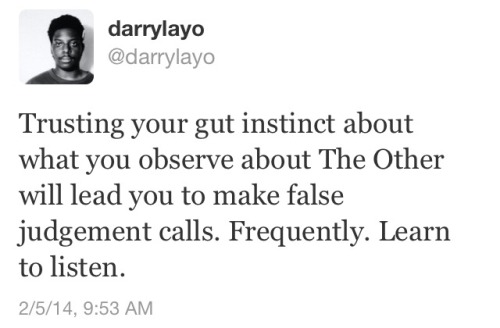Swimming with the student loan sharks
I'm from a very unhappy medium in the lower middle class. As an
electrician my mom made just enough money to disqualify me for a Pell Grant,
but nowhere near enough to fill the gap between scholarships and tuition at
Brandeis University. The "solution" was $50,000 in loans.
The first monthly payment on my Perkins Loan hit just after I
moved to New York, and was equal to roughly all my money. The kicker: I
received the bill several days after it was due. I'd just moved, and their
confusion as to my whereabouts was perfectly reasonable. It was still
terrifying, but nothing seemed amiss. The obvious solution would be to get in
touch with Campus Partners, the company in charge of the loan, to explain my
situation and get everything squared away. That should be easy enough...if
Campus Parners answered their phones.
Or, after taking half an hour to answer their phones, they didn't
hang up.
Or if their phone operators weren't specifically instructed to
obscure and omit relevant information, even when specifically and repeatedly
asked.
Or if they made it possible to get in touch with someone with any
authority.
Or if they had an email address, or any other way to get in touch
with them online.
After several days of
calling Campus Partners despite their determined resistance, I learned that I
could submit a forbearance request. In paper.
No electronic documents allowed, even though an electronic document would be
far quicker and easier for everyone. Apparently Campus Partners was only
willing to process urgent legal documents in the least efficient form possible,
which seemed to match their “delay and ignore” M.O. just fine.
Putting together this forbearance application took time. It
required documentation of income, which is hard to pull together when you've
just moved twice in a single month and commute four hours a day day. It also
required a printer, which I didn't have.
It took a few weeks to put this form together, but just as I was
about to send it - while at the post office, just before I sealed the envelope -
Brandeis financial services called me and told me I could submit it
electronically, straight to them. When I mentioned Campus Partners' behavior to
them, they were concerned, and said they'd look into it.
Brandeis also told me it might be a good idea to consolidate my
loans, to which I replied, "Huh?" Campus Partners had left out
the fact that I could mash my Perkins Loan together with my Stafford Loan (whose
monthly payments were based on my income) so I wouldn't have to pay extra money
each month. In short, I’d be home free, at least in the short term.
After sending out the forbearance application and the loan
consolidation request, I felt a weight lift off my chest, followed immediately
by suspicion. If Brandeis could accept the form electronically at a moment's
notice, why did Campus Partners need a hardcopy and several weeks to process
it?
Ah well, it wasn’t my problem. My forms were in, and I was set,
right? Right.
About three weeks later, I got another letter from Campus
Partners. Looking at the envelope, I nodded. This would be the confirmation
that they'd received and processed my documents. Still nodding, still smiling,
I tore open the envelope to find a...
final demand letter?
I blinked and read it again. No, it definitely said "FINAL
DEMAND LETTER", and it was definitely threatening to send my loan to a
collections agency if I didn't pay up now.
After freaking out for ten minutes, I contacted Campus Partners to
check if they'd received the form I sent two weeks ago. They said they hadn't.
I then called my mom, Brandeis's financial department, and my boss, looking for
some sort of way out of this. I also contacted an old mentor of mine, who
mentioned that student loan servicers have a shady reputation, and that this
one seemed shadier than most.
That put me on edge. Since they'd started sending me letters in
May, Campus Partners' correspondence had been continually late. Feeling a bit
sick, I took a closer look at the letter, and more importantly, at its
envelope.
 |
| Dated July 12th... |
 |
| ...and postmarked July 23rd. |
As you can see, the letter is dated July 12th, but
postmarked July 23rd. For some reason, Campus Partners delayed
urgent correspondence by 11 days, and deliberately sending my loan into
collections seems the only motive for doing so.
In the past three months, I've seen Campus Partners
make themselves difficult to contact, obscure relevant information,
deceive both me and Brandeis University, fail to acknowledge receipt of forms,
and send forms late to prevent me from responding.
I was lucky. When I spoke to Brandeis again, I learned they'd
already pushed through their forms, and I was in the clear. But what if I
weren't? What if someone else, dealing with this company, hadn't kept hammering
at their phones for weeks on end? What if their forms got stuck in the mail?
What if Brandeis hadn't picked the exact right moment to call? I don’t want to
think of that.
And frankly, I shouldn’t have to. If our education and our
livelihoods depend on the good faith and credit of student loan servicers, it
is Brandeis’s responsibility to ensure that we can rely on them. It is
unconscionable that this university deals with a company that deceives and robs
those students it should aid and protect. Brandeis needs to vet its student
loan servicers carefully and actively monitor their behavior to prevent this
sort of abuse.
Campus Partners is a loan shark in graduation robes. You shouldn't
have to with them, and Brandeis University shouldn’t make you.
An abridged version of this story has been published on the Brandeis Hoot.










